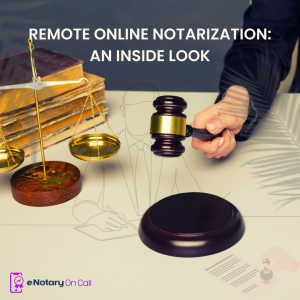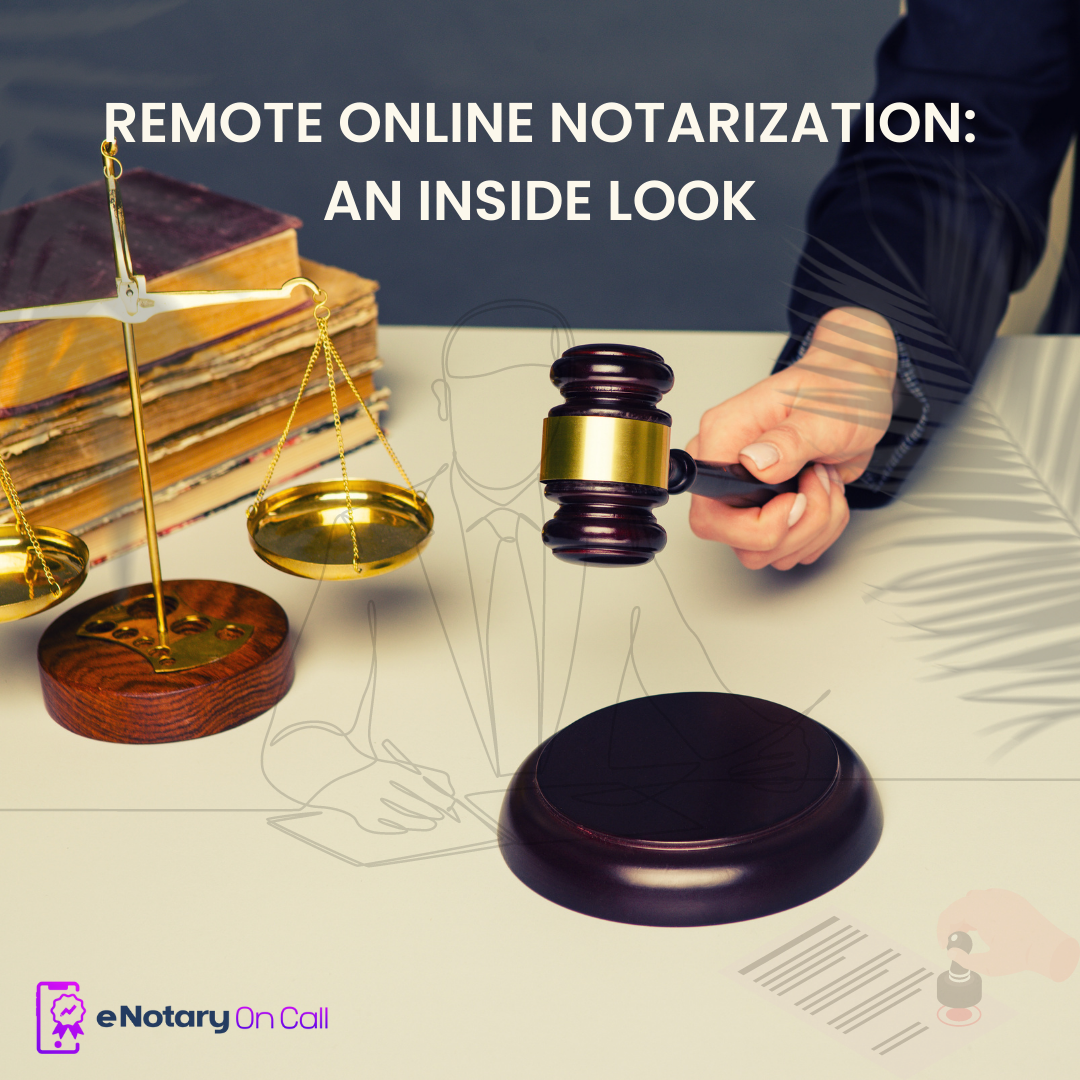
Notarization is an official process in which a signer witnesses the signing of essential papers by the public notary with legal authority. Important documents, such as those involved in the purchase of a home or those required as a proof for official purposes, must be notarized. In terms of combating fraud, forgery, and data breaches, remote online notarization is more authentic than traditional notarization.
People would hire a public notary and travel to meet them in person, which made the Notarization process a bit stressful in the past. Typically, this entails taking time off from work or deferring other vital tasks. In addition, they had to set aside a day for the process, which cost them money and inconvenienced them. If you are interested in learning more about online notarization, you should know that remote online notarization allows you to notarize your papers swiftly and from the comfort of your own home.
What is remote online notarization?
The use of remote online notarization is more convenient. Notarizing your documents using online technology such as knowledge-based authentication, electronic signatures, notarial journals, and recordkeeping tools is done through remote online notarization.
The public notary and the interested party or signer do not need to meet in person to notarize your documents with remote online notarization. This is because modern technology allows the process to be completed virtually. Rather than arranging a time and physical location to complete the act, a notary public notarizes documents online using their devices. The notarized documents can then be downloaded from anywhere. The legality and protocol of remote online Notarization differ by state.
Fortunately, the transition from traditional notarization to remote online notarization was accelerated during the epidemic, revolutionizing Notarization in an easy and fast manner, allowing everyone to notarize documents from the comfort of their homes.
General criteria for performing remote online notarization
Since the pandemic, a growing number of states have approved remote online notarization as a means of controlling the virus’s spread. The specifics of how the operation is carried out differ in every state, but the essential concepts are consistent.
A typical remote online notarization entails the following:
Steps in Notarization:
• The signer sends a request to a notary.
• The signer must then confirm their identity in accordance with their state’s legislation.
• Then, the Knowledge-based authentication, or simply the KBA, is used to verify the identity.
• Signer uploads the documents that are needed to verify.
• After verification, the documents are notarized, and signers can easily download the documents.
What is KBA?
Signers may be asked questions about their background to validate their identification, which is then checked against a third-party database. Other times, the notary inquiries about the signer’s credit history and requests a photo of their government-issued ID.
Verification of the signer’s identity & document notarization
Once the verification is complete, the notary and the signers use this remote online technology to notarize the document. The signer and the notary review the agreement to proceed with the Notarization procedure via remote online notarization during the session.
The notary then records crucial information regarding the notarial transaction, which is saved for future use via remote online technology. The electronic signature program can be integrated or standalone, with the notary performing all functions. The notarized documents will then be downloaded to the signer.
The legality of remote online notarization
Remote online notarization is gaining popularity as a convenient and secure method of preventing document fraud and avoiding the risk of covid. State legislation, on the other hand, may differ. Because of its convenience in offering hassle-free notarization services online, remote online notarization is now used in most states. We’ll run through a few of the advantages of RON here:
Benefits of remote online notarization
• Convenience
Signers and notaries need not be in the same physical location to notarize the documents; instead, they can complete the full process online. As a result, obtaining notarization services has become considerably easier than the conventional notarization method. People with major health conditions and those who live in remote places may find it easier to notarize their documents. now through remote online notarization that the barrier of physical presence has been removed.
• Security
Fraud is difficult to commit with remote online notarization technology since it is difficult, if not impossible, to change electronic signatures due to the platform’s comprehensive security safeguards. It eliminates the disadvantage of in-person notarization. It is possible for a fraudster to change the signature or erase any other crucial information during the traditional notarization procedure. However, this is no longer an issue with remote online notarization. Signers must produce their authorized personal identity cards and answer questions about their background to authenticate their identity during RON. The documents are processed after verification, which adds an extra layer of protection.
• Improved customer experience
Remote online notarization is a hassle-free technique because it minimizes travel by eliminating the need for appointments, and the papers may be simply downloaded after the Notarization process is completed.
Remote online notarization has a bright future ahead of it, and it is likely to abolish the traditional notarization procedure to a substantial extent. It provides simplicity and security, which are crucial factors for today’s consumers.
If you are looking for the best online notary service, you can go for eNotary On Call, which has cutting-edge technology with robust security features.



